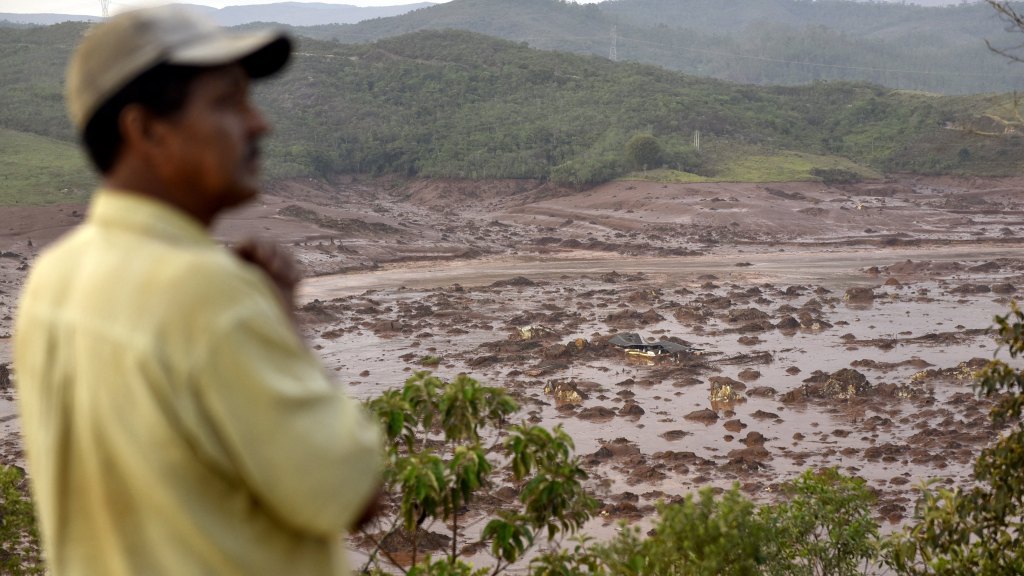BHP Launches Legal Defense in £36 Billion Samarco Dam Disaster Lawsuit
Nearly ten years after the tragic Samarco dam incident in Brazil, BHP is set to contend with lawyers representing a class action lawsuit that estimates the compensation demand at a staggering £36 billion.
This legal battle will commence on Monday in the High Court in London, where BHP, recognized as the world’s largest mining entity, faces allegations of liability for the catastrophic dam failure that occurred in Minas Gerais in 2015, claiming the lives of 19 individuals and resulting in one of Brazil’s gravest environmental crises.
The failure of the Fundão tailings dam, part of the Samarco iron ore partnership between BHP and Vale located in southeastern Brazil, released 40 million cubic meters of hazardous waste, obliterating communities and contaminating 400 miles of the Doce River.
Pogust Goodhead is spearheading the class action, noted as the largest of its kind in English history, advocating on behalf of approximately 620,000 claimants. The firm argues that BHP’s 50 percent ownership stake in the Samarco venture renders it responsible for the disaster.
The lawsuit will invoke Brazilian legislation that enforces strict liability on companies engaged in inherently dangerous operations, including mining, particularly with regards to the construction of upstream tailings dams.
If successful, this case could mark one of the most expensive corporate disasters in history.
As the trial approaches, BHP, alongside Vale and Samarco, has moved closer to a possible settlement with Brazilian authorities, having proposed a $31.7 billion compensation plan, which incorporates nearly $8 billion already distributed. The settlement would allocate $18 billion over two decades to the Brazilian government, the states of Minas Gerais and Espirito Santo, as well as indigenous communities.
Pogust Goodhead characterizes this proposed settlement as a “last-ditch effort by BHP to evade judicial accountability for the dam’s collapse. “
The decision to pursue legal action in London is rooted in BHP’s dual corporate framework, which previously operated in both the UK and Australia before consolidating in Sydney.
BHP asserts that it was merely a non-operational partner in the Samarco joint venture, lacking direct control over daily operations and dam management. Furthermore, the company claims the London litigation is redundant due to ongoing settlement discussions in Brazil.
A BHP representative expressed, “The Fundão dam collapse was a devastating tragedy, and our heartfelt condolences remain with those affected. We continue to collaborate with Samarco and Vale in the ongoing remediation and compensation efforts in Brazil. The Renova Foundation, formed in 2016 under our agreement with Brazilian authorities, has invested over $7.8 billion on immediate financial aid, compensation, and environmental restoration for around 430,000 residents, local businesses, and indigenous groups.
“BHP Brasil is committed to working with Brazilian officials and others to conclude a fair and all-encompassing compensation and rehabilitation process aimed at securing funds for the impacted Brazilian populace and environment, including traditional and indigenous communities.”
Approximately 200,000 claimants have already received compensation under Brazil’s reparations system. However, the lawsuit contends that the compensation administered by the Renova Foundation, established by BHP and Vale post-disaster, falls short.
The legal fees for the claimants are projected to reach about £250 million by the conclusion of this preliminary trial, which is expected to last around 12 weeks. Pogust Goodhead’s remuneration will comprise up to 20 percent of the compensation awarded to municipalities and utilities, and as much as 30 percent for individual and business claimants.




Post Comment